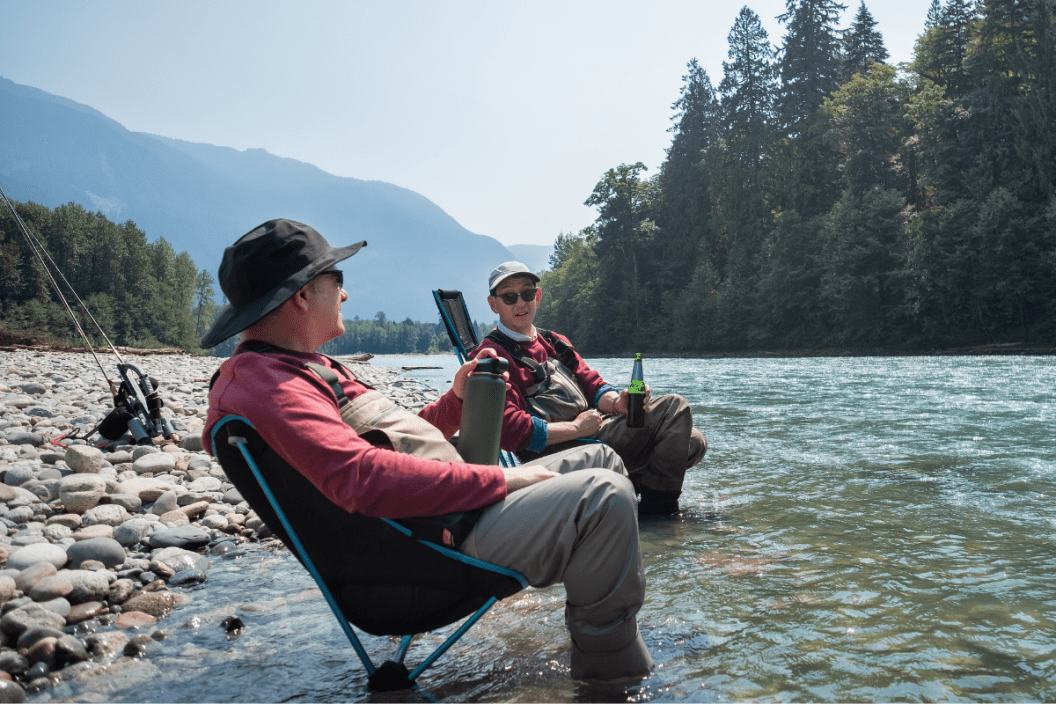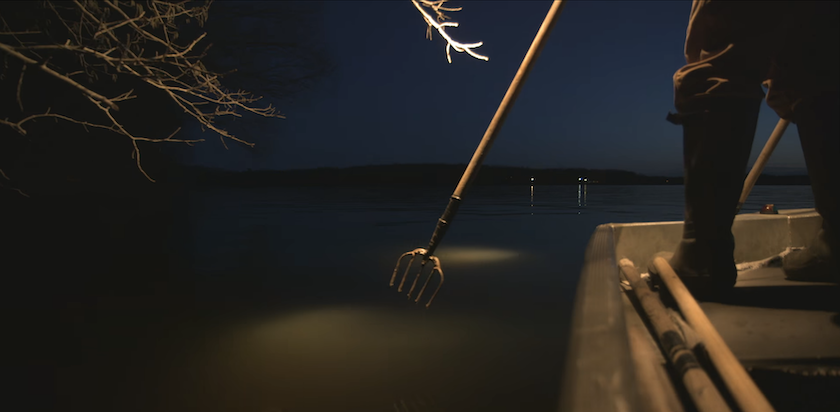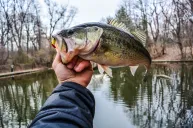We anglers fish for fun, first and foremost. When we get together with our fishing buddies, the fun times don't start until we've swapped some believe-it-or-not fishing facts and stories. It's okay to admit this tale-telling wouldn't feel right unless we stretched the truth a little bit, but there are some absolute fishing truths that we all have to agree on. We'll see if we can list a few fishy facts you may or may not know. Hopefully, by the end, you can pull them out of your hat on the boat or at your neighborhood pond to get the stories flowing. After all, it's nice when small talk on the water produces an ongoing conversation debating whether or not it's true. You can rest assured that these, in fact, are real.
1. The World Record for Largemouth Bass is a Tie
In 2009, Manabu Kurita landed a 22-pound, 5-ounce bass on Lake Biwa, the largest freshwater lake in Japan. It sits atop the International Game Fish Association (IGFA) record books beside the vaunted (and enduring) world record bass caught by George Perry on Lake Montgomery, Georgia, way back in 1932. People chased that record for over 80 years before Kurita managed to tie it!
Yes, we meant to say "tie," and not break. A rule in the IGFA record-keeping system is that a fish must weigh at least two ounces more than the previous record holder to take its place. You might think that the "scales" of justice were stacked against Kurita, but the rules are the rules. The poor guy even had to sit through a polygraph test, too. The Perry bass weighed in at 22 pounds, 4 ounces, and the Kurita bass weighed 22 pounds, 5 ounces. That's a tie as far as the IGFA is concerned.
2. Native Americans Have Legally-Backed Rights Beyond Those of Non-Indigenous People
In many states across the country, Native American populations are able to legally fish in locations and with methods that differ from non-indigenous folks. Take Wisconsin walleye, for example. Since the late 1980s, six Ojibwe indigenous nations have had the right to spearfish for spring-run walleyes. They earn this right based on a tribal declaration of how many walleyes and muskellunge they intend to harvest from each lake. The fishermen must acquire permits before the harvest, which must be "documented each night with a tribal clerk or warden present at each boat landing."
According to the Green Bay Press-Gazette, "Tribal fisheries on reservations more than replenish those numbers yearly. These hatcheries produced more than 15 million walleye eggs in 2018, of which more than 121,000 reached extended growth fingerlings and were released into Northwoods lakes."
3. Muskellunge Will Bite You
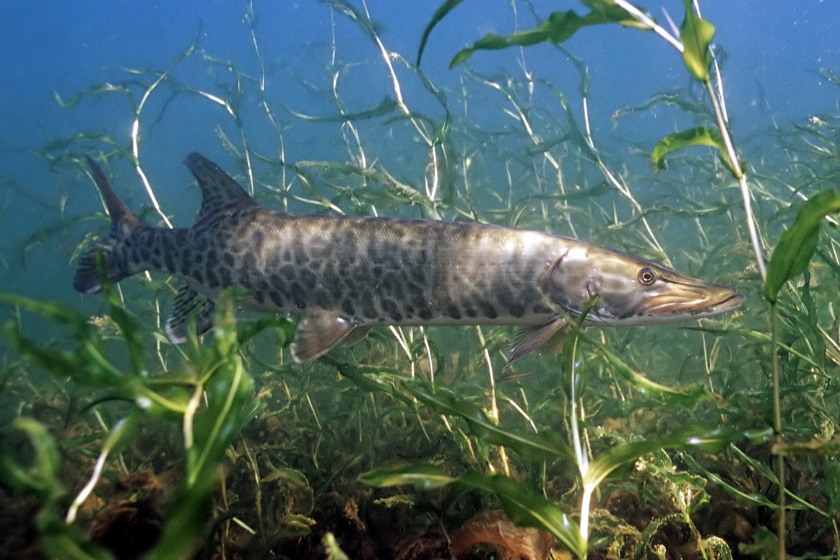
Engbretson, Eric / U.S. Fish and Wildlife Service, Public domain, via Wikimedia Commons
It may be rare, but there are documented cases of muskies gnawing on bathers, kayakers, and even water skiers. No one knows whether it's flailing hands and feet or reflective items such as jewelry that catch the fish's attention. Still, the fact is that every summer in North America, there are reports of some big Esox masquinongy that puts their teeth on humans, and it's no joke. This fun fishing fact might only be fun for the fish. It makes the phrase "ambush predator" all the more dangerous-sounding to folks who want to have summer fun in waters where these fish live and thrive. Muskies are not purported to be as aggressive as northern pike, but you could have fooled us.
4. Birds Are the Best (Worst?) Bait Thieves
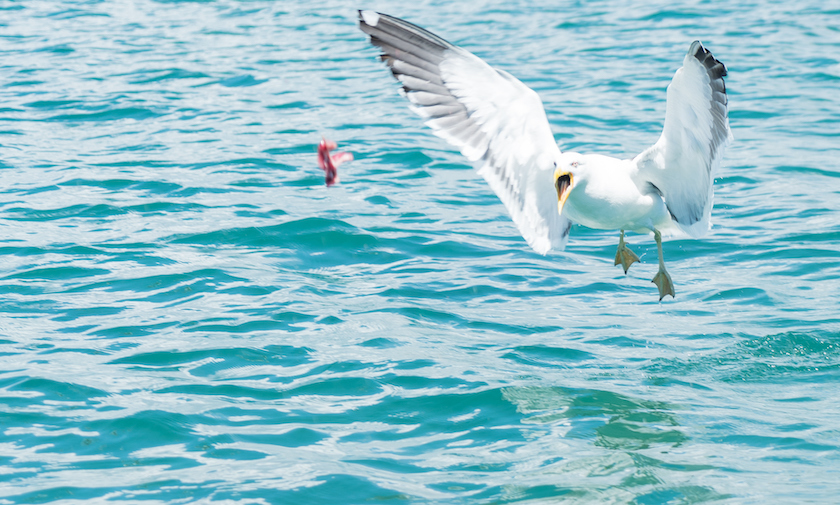
RobynRoper via Getty Images
I have witnessed my father having to do an emergency lure removal from a seagull that grabbed his Creek Chub Pikie-Minnow back in the day, and that was only the beginning of my experience with feathered flyers while fishing. One time I was bass fishing around some docks and boathouses on New York's Honeoye Lake with a buddy of mine and got a first-person look at an osprey that launched off one of the boat houses, plucked his spinnerbait out of the water, and turned to fly away. Luckily it lost its grip, but if a bird is determined, they'll steal it.
Not only that but one afternoon on a small lake in Ontario, Canada, I got a tremendous clear-water view of a loon that tried to take my live crawfish right off my hook. You never know what's eyeing the bait you're using, and that's one of the most exciting things about fishing.
5. Largemouth Bass Are Totally Edible
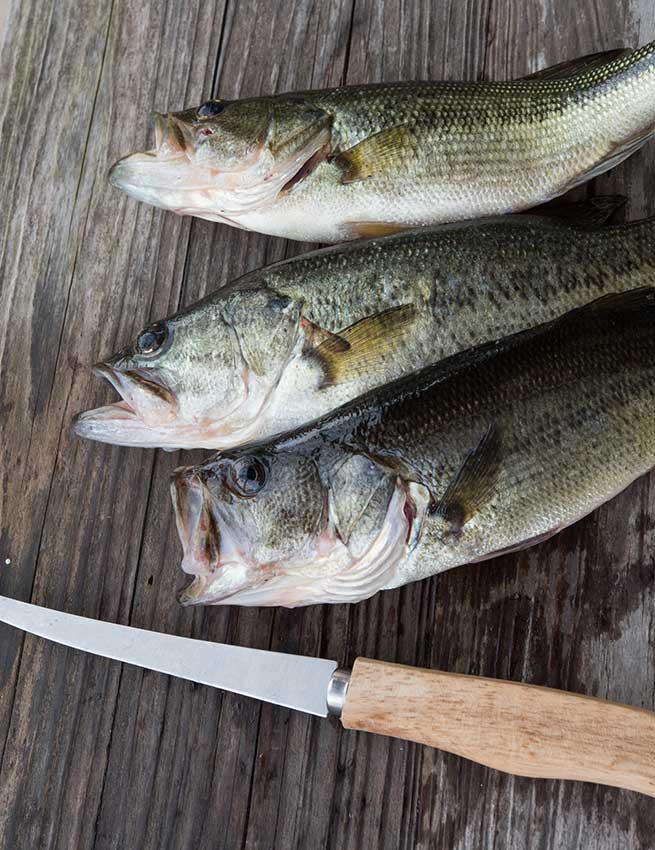
Every state in the union with a largemouth bass population has a size and creel limit for the species, so every one of us can take some home to the dinner table. Those who preach catch and release will wince at this fact, but it's true. I've eaten a few, which are excellent when cooked correctly. This is tough to hear for many ardent bass anglers around the nation, but taking a few home throughout the season is not only your right as a license-buying fisherman, but it makes for a great meal.
Please check out my book "The Hunter's Way" from HarperCollins. Be sure to follow my webpage or on Facebook and YouTube.
